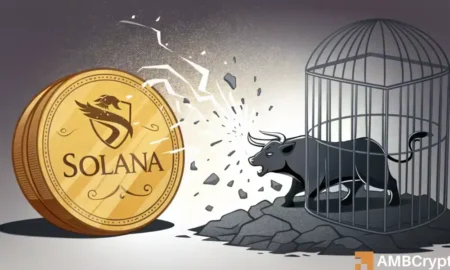South Korea’s Crackdown on Crypto Exchanges: A Response to Regulatory Compliance
In an unprecedented move, South Korea’s Financial Intelligence Unit (FIU) has taken significant action against foreign cryptocurrency exchanges, including prominent platforms like KuCoin and MEXC. In early April, the FIU requested that Apple Inc. block access to 14 crypto-related apps operating in the country without proper reporting to local authorities. This decision aligns with South Korea’s ongoing initiative to regulate the burgeoning cryptocurrency market and ensure compliance among foreign virtual asset operators. As the nation aims to tighten its grip on the crypto sector, the implications of these actions could ripple across the global cryptocurrency landscape.
Overview of the Regulatory Landscape
The South Korean government is taking a firm stance to safeguard its financial ecosystem from potential risks associated with unregulated cryptocurrency trading. Following the request made to Apple, the FIU stated that these 14 apps were blocked due to their failure to report their operations. Such a crackdown is reflective of a broader trend in which the regulatory body is prepared to impose fines—potentially reaching up to $35,000—for non-compliance, further deterring foreign exchanges from continuing operations without oversight. The nation previously pressed Google to block access to 17 additional apps, illustrating a heightened focus on enforcing compliance measures within the crypto arena.
Motivations Behind the Crackdown
At the heart of this regulatory drive is South Korea’s determination to combat money laundering and protect its citizens from financial risks associated with unregulated crypto platforms. The FIU emphasized the potential dangers posed by unreported activities, indicating that the effort is not only about regulatory compliance but also public safety. As cryptocurrency trading continues to scale, governmental authorities are keen on ensuring that all operations within their jurisdiction align with prescribed legal frameworks, effectively reducing the risks of fraud and deceptive practices prevalent in the crypto sector.
Broadening the Scope of Enforcement
The recent block of well-known exchanges has sent ripples through the cryptocurrency community, highlighting the growing willingness of governments to take decisive action against perceived threats. The blocked apps—besides KuCoin and MEXC—also include others like Blofin, Coins, Bitglobal, and BitMart, indicating the FIU’s comprehensive approach to regulate this rapidly evolving market. In addition to digital asset exchanges, ongoing consultations with relevant organizations may lead to further censorship of websites and applications associated with overseas operators that fail to comply with regulations. Such steps are crucial in reinforcing the integrity of the domestic financial system.
Regulatory Clarity Ahead
Looking towards the future, South Korea’s regulatory framework surrounding cryptocurrencies may become more defined, with indications toward potential legislative measures expected in Q3 2025. This development aims at creating a more conducive environment for institutional investments in the crypto sector, positioning South Korea as a competitive player within the regional landscape dominated by hubs like Singapore and Hong Kong. Regulatory clarity could potentially foster greater investor confidence and encourage the adoption of innovative products, including Bitcoin exchange-traded funds (ETFs), particularly if regulations from neighboring markets like Japan set a precedent.
Conclusion: A New Era for Crypto in South Korea
As South Korea embarks on this serious phase of cryptocurrency regulation, the landscape is set for transformative changes. The proactive measures against exchanges operating without appropriate oversight could lead to more robust compliance frameworks that protect users and foster legitimate trading practices. If the anticipated regulations come into effect and establish an environment friendly to cryptocurrencies, it will likely catapult South Korea into a significant position within the global cryptocurrency ecosystem. In this evolving narrative, the balancing act between regulation and innovation will be crucial as the nation grapples with the future of digital assets. The roadmap ahead remains critical, as South Korea aims to emerge as a leading destination for cryptocurrency investments while safeguarding the interests of its citizens.
















